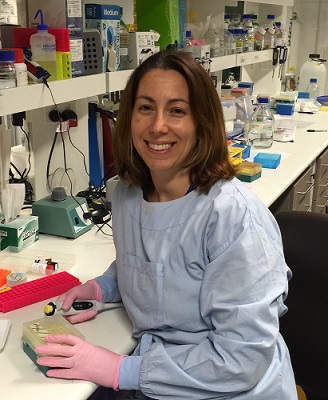Research And Grants

Sydney Children's Hospital - Randwick – $196,577 USD / $296,025.11 AUD
Dr. Maria Tsoli
$196,577.00
October 2024
Translational
DIPG/DMG
Unlocking the potential of the blood-brain barrier in the fight against paediatric brain gliomas.
Despite considerable research efforts, brain tumours persist as the leading cause of death among children. A significant obstacle in treating these tumours is the blood-brain barrier (BBB), a protective barrier surrounding the brain that typically restricts the passage of therapeutic agents. Of particular concern is Diffuse Midline Glioma (DMG), a childhood brain tumour notorious for its resistance to treatment due to its location and the unyielding nature of the BBB. Our research team has made a critical observation: as DMG progresses, the BBB remains impermeable, exacerbating the difficulty of delivering anticancer drugs to the tumour site. Furthermore, we have uncovered alterations in specific signalling pathways within the brain's blood vessels induced by the tumour, contributing to the fortification of the BBB. Excitingly, we have identified a promising approach to counteract these mechanisms using clinical drugs targeting these pathways, potentially weakening the BBB's defences. Our strategy entails a comprehensive investigation into the mechanisms governing BBB function in DMG, with the aim of identifying modulators capable of enhancing its permeability. We will test BBB modulators in DMG preclinical models to evaluate their potential to enhance the penetration of anticancer agents. Our goal is to improve the treatment options for DMG patients.
This project will build upon our prior discoveries and new insights that will be obtained from advanced molecular analyses of preclinical DMG models. We will pinpoint safe BBB modulators capable of opening the barrier. Subsequently, we will assess the efficacy of these modulators in conjunction with anticancer agents in preclinical DMG models. We believe this is a unique approach that will open the opportunity for many currently used drugs (chemotherapy or targeted agents) with limited brain penetration to be finally employed as treatments for children with DMG. Furthermore, this approach has the potential to improve the treatment options for other brain malignancies. Our team, a collaborative effort of researchers and clinicians with diverse expertise in this area of research, is united in our commitment to combatting this devastating disease. Through these collective efforts, we aspire to develop improved treatment modalities for children afflicted by DMG, offering them renewed hope for a brighter future.

